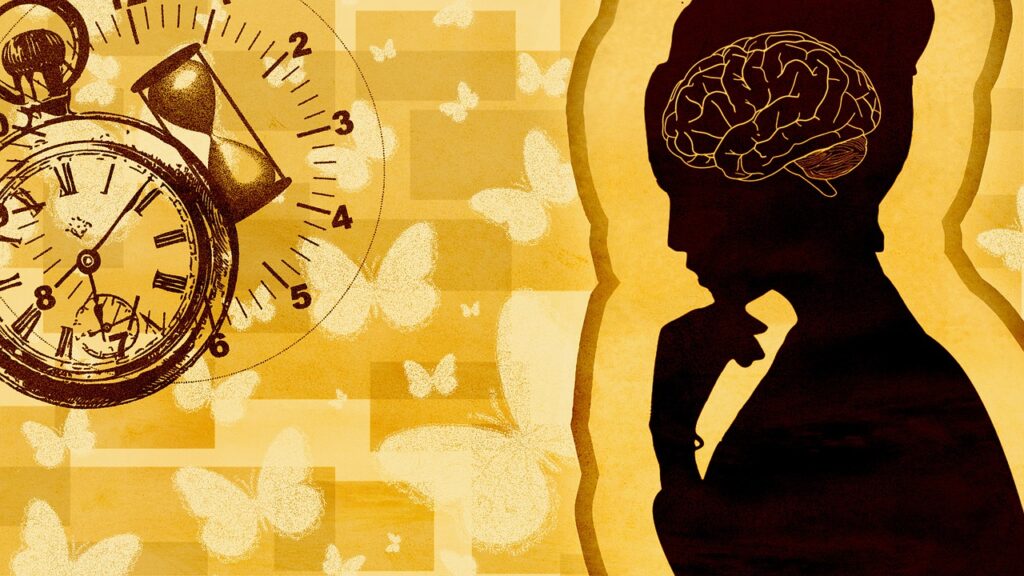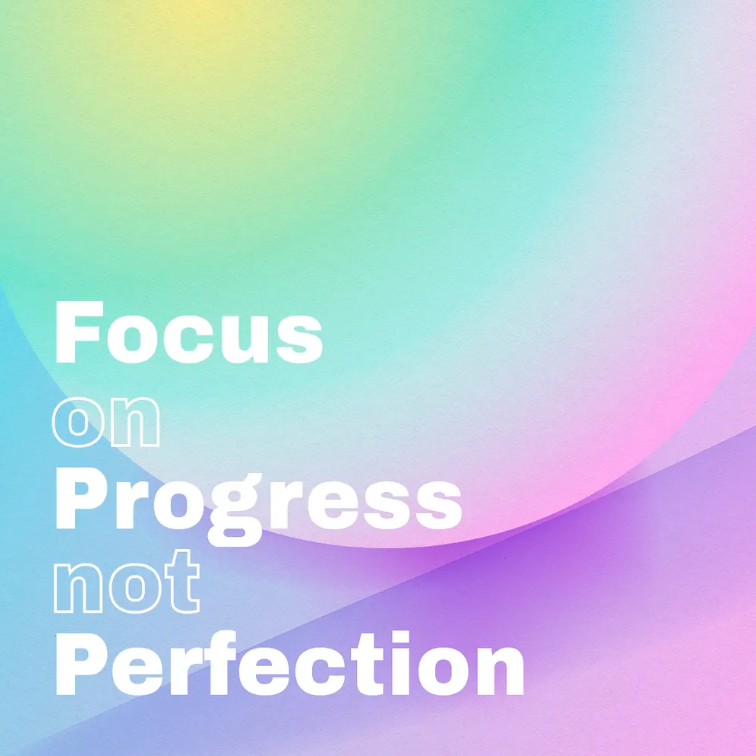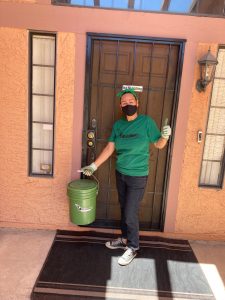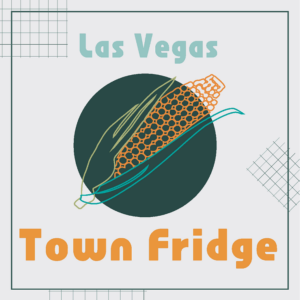ADHD Awareness Month
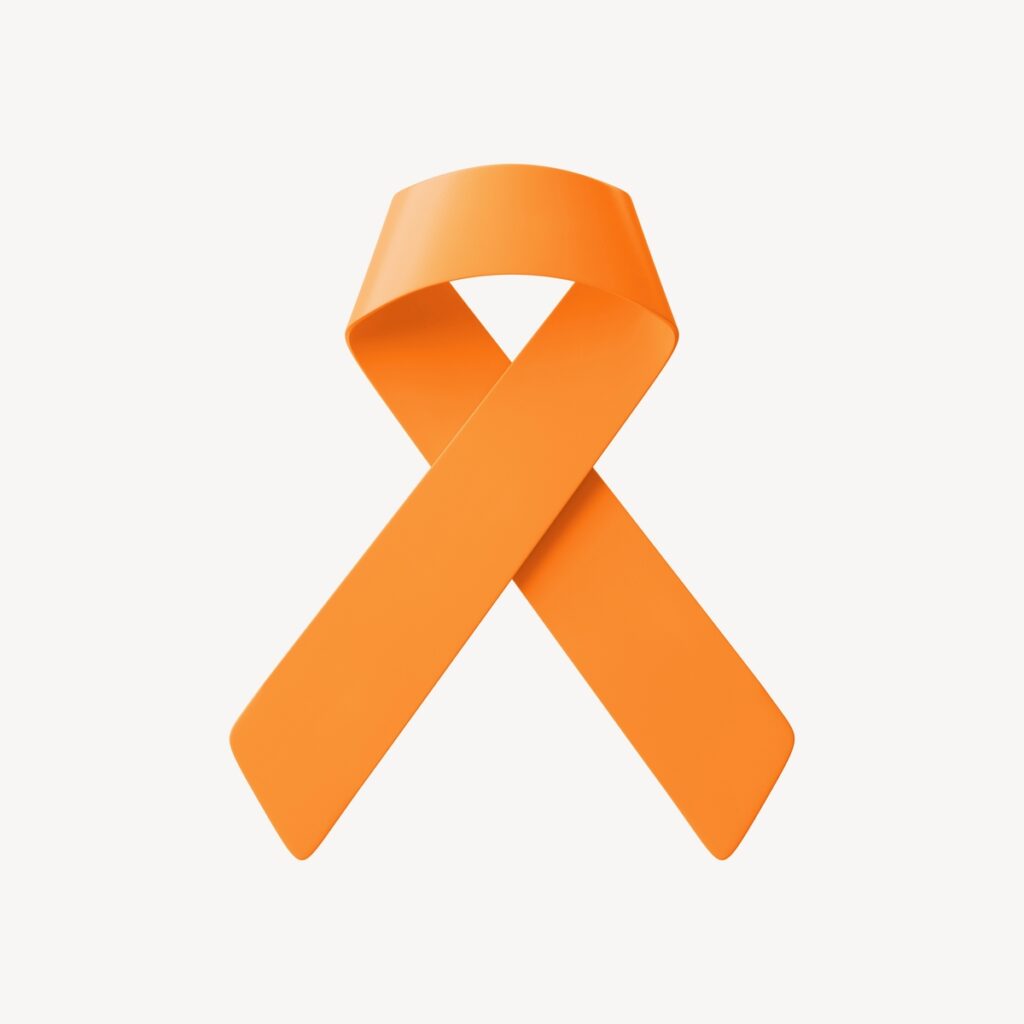
During October, people around the country raise awareness for ADHD, a cognitive disorder affecting millions of children and adults worldwide. An estimated 5.6%, or one in every 20 children, has ADHD, and between 2.8% to 4.4% of adults. It manifests in many ways and differs between people in terms of symptoms and severity.
About two years ago, I started looking into ADHD and quickly began connecting the dots about many things in my life, both from childhood and adulthood. You might recall me discussing it in two previous articles: Neurodivergence & Learning About Myself and Neurodivergent Writing – ADHD.
I’ve been meaning to write about my ongoing experience understanding ADHD, and when I realized this month was National ADHD Awareness Month, I just had to get on it!
What ADHD is Like For Me
ADHD is multifaceted, with multiple symptoms that manifest differently between those managing it. People have many misconceptions about ADHD, such as the assumption of its “hyperactivity” part. And while some people can experience physical hyperactivity, many of us get mental hyperactivity instead. For example, I could be sitting completely still while my brain moves a million miles an hour, barely holding onto a thought. While some aspects of my ADHD has its benefits, like multitasking and generating ideas, it also makes my life incredibly difficult.
Attention Problems and Hyperfocus

For me, it’s hard to focus a lot of the time. My mind will bounce back and forth all over the place while I try to complete things. I habitually have at least 20 tabs open on my computer as I work on multiple tasks. On other occasions, I get hyperfocused, where everything else around me ceases to exist, while I give my undivided attention to one task or thing that can consume me for hours or until I’m interrupted, and the focus is broken.
This aspect largely relates to difficulty in priority placement and activity transfer. This means that my brain sets up this list of priorities so that it will constantly rearrange without warning. It’s why I might go into the kitchen to make food, and an hour later, I’ve instead cleaned the kitchen instead of cooking. Or I might start the coffee on the stove and step outside to take my dog out, only to get caught up in gardening and realize I’m burning my coffee a half hour later.
However, it isn’t all bad! Hyperfocus has allowed me to absorb much knowledge over the years for various topics. When allowed to, I can info dump when people ask questions about things or are curious about them. It’s why I can talk for literal hours about things like the climate crisis, environmental topics, and other systemic issues or random quirky facts. I can quickly and off-handedly share information with people, who I’ve found are often surprised at how much I know or what I know. It is always refreshing when people enjoy what I say and are eager to let me share it!
Executive Dysfunction and Task Paralysis
ADHD is also why I have trouble getting things started in the first place. This relates to executive function, or in my case, executive dysfunction. When I explain this to people, I tell them how it’s essentially where I know what thing I have to do, I want to do the thing, I need to do the thing, but I can’t do it. What’s happening here is that my brain won’t make the dopamine that I need to kickstart the thought of getting up and doing something and turning it into action.
I will sit frozen in bed almost, telling myself, “Get up, go do the thing,” and my brain and body won’t respond. This symptom is called “task paralysis.” And it’s also why I sometimes ignore my body’s needs if I’m working on something. For example, I might be working at the computer and feel hungry or the need to pee. But if I step away from the computer, I know that I will be breaking my focus, and I might not make it back to the computer for an hour or longer. So I stay while my bladder fills or my tummy empties. Hours later, I still won’t have gone to the bathroom or eaten, and now I’m in pain from it.
Time Blindness and Running Late

If there’s one thing I am admittedly known for, it’s for being late, for everything. I know it’s a huge problem, and it’s not some cute or quirky personality trait to excuse. But it’s one of the things I have the most difficulty. It’s a culmination of things, including task paralysis mixed with time blindness. On top of having difficulty starting on something, like getting ready to go to an appointment or a meeting, I also have difficulty grasping the concept of time and how quickly it passes. I can’t just say something will take me a couple of minutes or that I “have time.”
Between distractions, resetting priorities, inability to start things, and everything else, it’s hard for me to do things quickly in a short period. I also forget everything I need to do until it’s time to go, even if I’ve been getting ready for a while. This issue is something I’ve desperately been trying to work on in my day-to-day life for years, and it’s the thing that seems to evade me the most. I should know by now that tasks always take me longer than I expect and that I need to accommodate myself for that ahead of time to minimize how much I am running late and eventually work on getting myself to be early to things.
One way I’ve had to do this is by tricking myself on the start time of things. When I put something into my calendar, I will put the start time a little earlier than it’s scheduled for. That way, if I’m running “late,” I am still on time. It sucks I have to do this, but it’s one of the best ways to help me get to things on time. Unfortunately, this only works with certain things, like appointments and meetings, and not frequent things that occur at regularly scheduled times.
Object Permanence and the ADHD Tax
Another issue I deal with is lacking object permanence. Once something is gone from my field of view, it’s “out of sight, out of mind.” As a result, I lose things very easily and don’t remember where they are. It’s also why things get so messy so quickly for me because my mind starts to block out the mess.
It’s why I need to keep my agenda book visible at all times, or it will become part of whatever pile it gets sucked into and cease to exist. For example, I used to have a small stack of books that included separate planners, to-do list books, journals, habit trackers, and other things to try and work on improving myself. Except that stack would then disappear under the clothes pile on the chair, and I couldn’t keep up with them.
Even worse, if I’m not consistently looking at my list of things to do, I will forget essential tasks and cause problems for future-me if I don’t get to them in time. This also makes my to-do lists repetitive as I continually drop the ball on specific tasks as I forget them.
To address these things, I now have a single book I use that has all of that in one, called the “Define: My Day” journal. Each one is one month (28 days), separated into four weeks that I plan out based on my goals, objectives, priority tasks, and to-do tasks. It’s also a weekly habit tracker where I identify the habits I want to build on and mark whether I do them daily. It’s helped me improve my productivity and remember what I need to do that month. I’ve used it for a couple of months now, and I’m really proud of my progress. Although, time blindness always sneaks in, and the month ends very quickly, so I sometimes have to rush things before the next month and journal begin.
One facet of my object permanence that still needs a lot of work is not wasting food, which I absolutely hate and feel shame about because of how bad I am with it. This also leads to what is known as the ADHD tax: essentially, money spent or wasted due to my symptoms, or some other sunk cost like time or energy spent. In particular, fruits and vegetables are often more likely to make it into the compost pile instead of being eaten because I don’t remember that it’s there. Once the fridge door closes, it doesn’t exist in my brain anymore. Then when I go to make something for dinner and want broccoli, I find it’s already gone bad. Or when I was grocery shopping, the thought of fresh watermelon sounded great, but I never cut it up, and now it’s rotten.
To combat this, I’ve had to buy things in smaller quantities and higher frequency, meaning I can’t buy in bulk and have to go to the store more often to have things fresh that week. And I pay a different ADHD tax in the process. Instead of buying something fresh that needs to be cut up or prepped, I might buy something pre-made or pre-cut, like my watermelon, or buy things canned so they last longer. Here the ADHD tax might be that the item is more expensive because it’s already prepared, or it might not be as fresh cus it’s canned.
Interrupting and Relating With Personal Stories
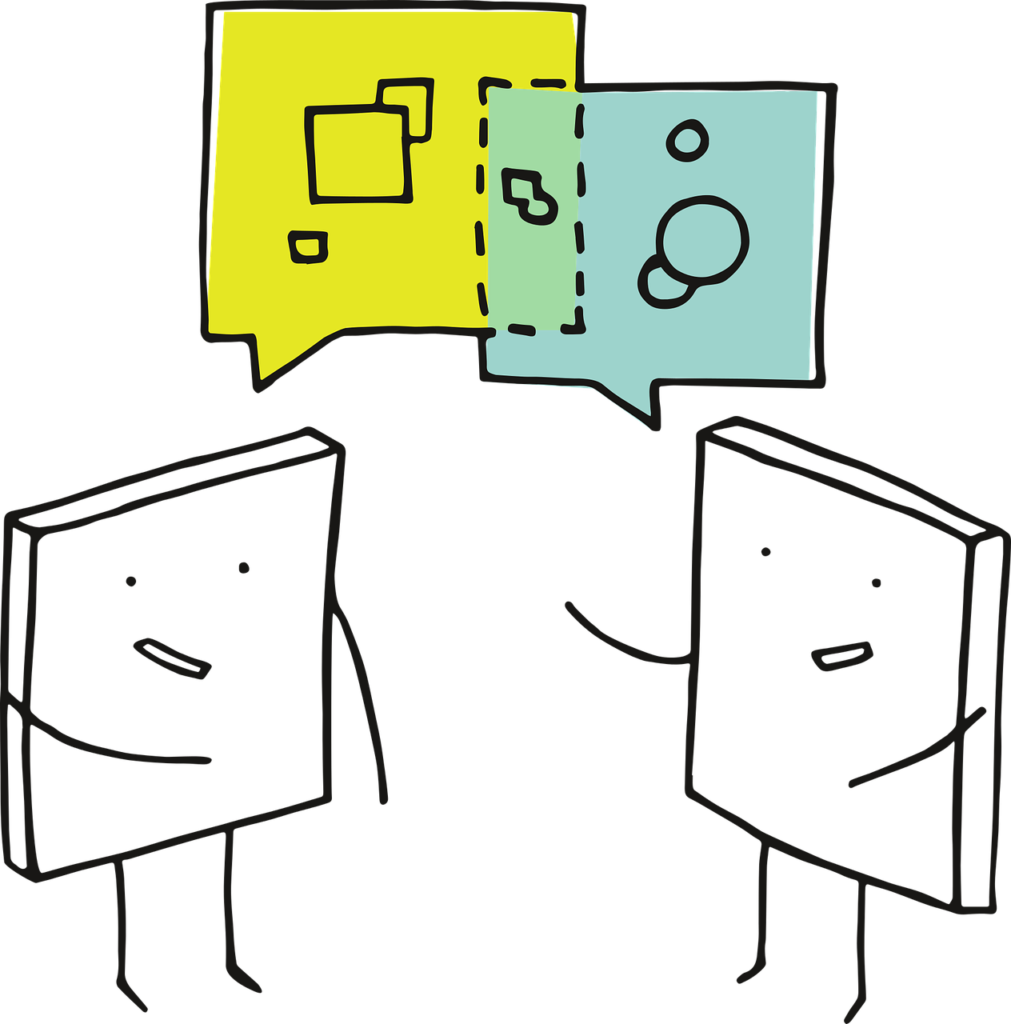
One of the biggest things I desperately try to be mindful of is not interrupting people. Although I don’t mean to be rude or cut people off, sometimes, I involuntarily interject a thought as it comes into my mind before I can stop it from leaving my mouth. My problem here is that I know the possibility of losing whatever thought I had is very high, and part of me fears that loss of connection. If a thought comes to mind while someone is talking, it’s because my brain made that connection and wishes to share it with them. But conscious, objective me knows this isn’t acceptable behavior and people don’t like to be talked over or interrupted. And they also don’t like when it seems like I’m trying to take over a conversation.
Which is another thing I must be mindful about; I relate to people and what they say by sharing personal experiences. But, unfortunately, this is often interpreted as making the topic about myself when I just mean to connect with that person and let them know I understand and perhaps even empathize with what they’re saying or going through.
Now that I understand why I have done this my entire life, I also now have to be responsible for knowing when it’s an appropriate time, place, and communication partner to do this. If it’s someone who knows me well, they understand I’m not trying to act selfishly and take over their conversation. Through them, I’ve gotten better at knowing how to do this more appropriately and work on quickly returning the conversation to them so they may continue their thought.
It’s also helped me learn how to relate better by empathizing with them through validation rather than sharing a personal experience. Now when I talk with people I don’t know as well or have just met, I am not so impulsive in trying to relate to them with my own experience. Instead, I let them do the talking and find better ways to connect and validate their thoughts and feelings.
The Difference that ADHD Makes in Our Lives
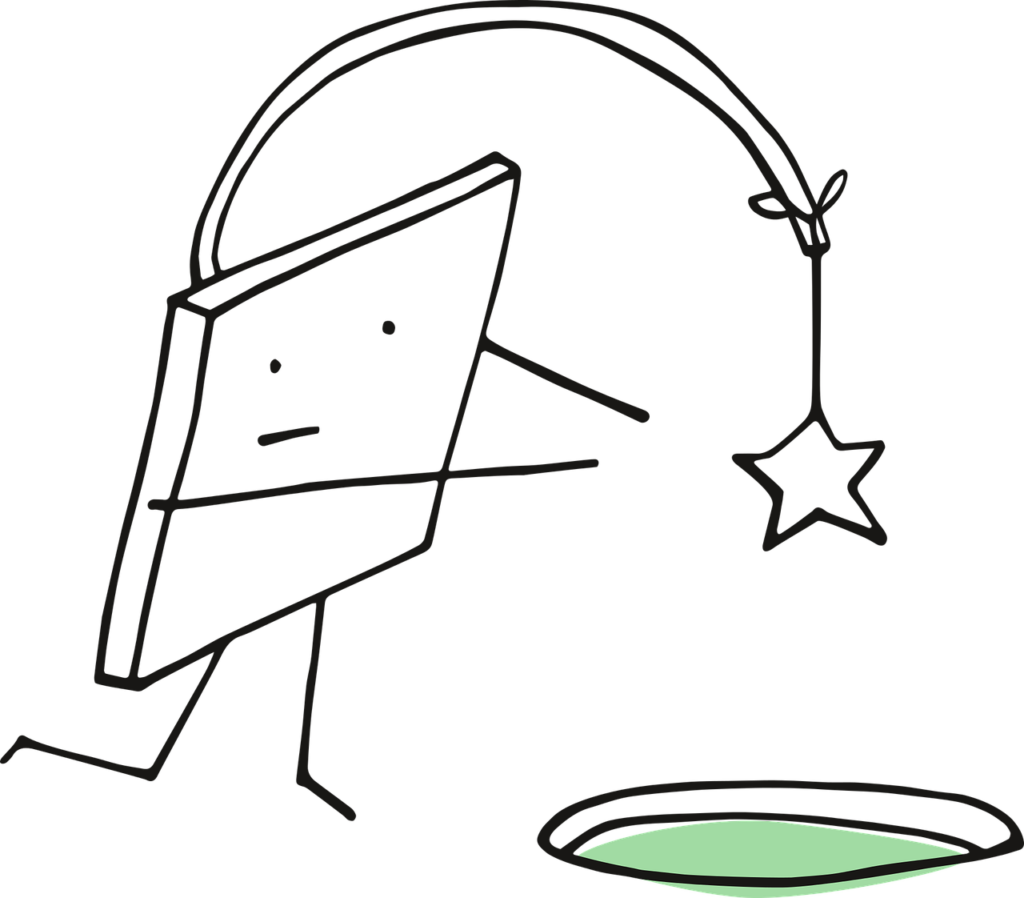
This is by no means an exhaustive list and explanation of the things I deal with managing my ADHD. There are so many more symptoms and facets of it that impact me everyday in all aspects of my life.
All of this has been a continual learning process these past couple of years. I’ve had to look hard at my communication style, habits, and every other area of my life and then commit to changing for the better. Next, I had to identify the areas of myself and my life that are impacted by my ADHD and see how I can attempt to address those impacts and make my life a little easier. Because at the end of the day, ADHD is a mental handicap that requires one to jump through more hoops than others to get even the most basic things done.
It’s not simply a matter of “forgetting” to do things or being “lazy.” People without ADHD do that all the time on occasion. The difference is that I have to set alarms to remember simple tasks that I would otherwise forget, like brushing my hair, eating, or drinking water.
Most people don’t need to track whether they eat breakfast or do other basic everyday tasks. Most people don’t struggle with doing basic tasks either – they get up and do them the moment they think of them. I am not a lazy person; I juggle a LOT of things, including this magazine, working two jobs, being a caretaker for my mom, and caring for a puppy, all while giving proper energy and attention to my partnership and friendships. It’s exhausting on its own, without needing to take steps to ensure I do basic tasks and juggle everything else.
People with ADHD must work extra hard to get through an average day. We deal with setbacks and steps that take away time from us in ways that others don’t deal with. It’s like running in a race where you have weights strapped to your ankles and have to jump over hurdles while everyone else sprints ahead on an open track, unencumbered. All while people tell us we’re lazy, need to try harder, need to focus, and every other thing we har as a result of these hindrances. When really, we need accommodations to help us live a little easier. And we need more general understanding from people about ADHD, and how it impacts our strengths and weaknesses.
(Article continues after the ad)
Please follow our fantastic site sponsors that make content like this possible! 🙂
The Next Step in My Management of ADHD
That’s why, this year, I took a huge step for myself and began seeking proper medical care for this diagnosis. When I first realized I have had ADHD my entire life, I thought, “Now that I know the why, I can be responsible and aware of myself and be better!”
I now realize that was a bit naive of me to think. It was definitely not for lack of trying, but just because I had self-awareness about what I was dealing with it doesn’t mean that anything changed with my brain chemistry. My brain is still wired differently and suffers from an imbalance in the neurotransmitters like dopamine that makes my life difficult. So, at the beginning of the year, I began seeking a formal diagnosis.
Seeking an ADHD Diagnosis
Initially, I was excited to start this next step in my journey. But as a woman with ADHD, I quickly realized how difficult it was to get a diagnosis or even have a doctor take me seriously. When I first brought up the issue to my former therapist, she laughed at me and said, “You don’t have ADHD. ADHD means someone has low self-esteem, and you don’t have that.” She was wrong about both of those things. And honestly, I found it alarming that a mental health professional would say such a thing about ADHD in general.
I spoke with my general doctor about getting an ADHD assessment in addition to screening for Autism, which, as mentioned in my other articles, I believe I have as well. She referred me to a neuropsychologist for this. But as it turned out, it wasn’t an assessment for these things; it was just a cumulative exam. The doctor doing my evaluation was also very unhelpful to me.
Not Being Taken Seriously
I came prepared with a spreadsheet I’d made outlining all of my symptoms and experiences, as well as the frequency, severity, and impact. Unfortunately, she wouldn’t even look at it. She also wouldn’t let me use the vocabulary I’d accumulated in my research about both diagnoses and said I was just using labels. (Ma’am, executive dysfunction, task paralysis, and object permanence are not labels, they explain my personal experiences.)
More annoying was the fact that she told me I didn’t have ADHD but outlined in my report that I have severe attention problems, among other things directly related to ADHD and Autism. She just put what I already know, that I have depression and anxiety. She also listed OCD tendencies (which yes – I am a chronic skin picker and constantly worry about whether the doors arelocked). But the thing that upset me ever more is that she wrote I might have Borderline Personality Disorder.
Usually, I’m of the mindset of trying to be open-minded and listen to professionals. But I went in there and explicitly told her I was worried she would misdiagnose me with something like BPD because from what I learned in the neurodivergent space was that adults who were initially diagnosed with BPD as kids actually had ADHD and/or Autism. Moreover, I told her that in my personal research, I had done my due diligence and looked at other possibilities like BPD but found that they did not align with my personal experiences. So it frustrated me that she completely ignored everything I said or explained to her.
I knew that was a possibility when I started seeking a diagnosis, especially after reading what other people had shared about doing so. But still, I was upset that here I was, a whole-ass adult with a deep understanding of myself, and I was blown off and minimized. The neuropsychologist told me I could go to an actual ADHD/ASD facility if I wanted a second opinion about her professional diagnosis. Unfortunately, by this point, I was already exhausted from seeking a diagnosis via assessment. Not to mention, going to a specialized facility for assessment could have run me hundreds if not a couple thousand dollars.
Seeking Medication Separately
After getting my results back, I spoke with my general doctor about my experience with the evaluation and the next steps to get the help I needed. She suggested talking to a psychiatrist who could determine whether ADHD medication would help me. So, I made an appointment with one and explained why I was there. She asked me a bunch of questions about my experiences and told me I definitely have symptoms related to ADHD and could benefit from ADHD medication. She wrote me a prescription for a non-stimulant SNRI that would also work to help my depression and anxiety. And so I began this new chapter of my journey.
Finally Some Relief
For the past couple of months, I have been on my medication. After the initial starting period and dosage adjustments, I finally feel evened out, mentally speaking. While I still have trouble with certain symptoms, things have improved a lot and, in some cases, gotten easier. For example, I can remember my tasks better without seeing my to-do list, I can get up and do things without feeling task paralysis as much, and I feel less impulsive about things. And in general, I feel my mind is clearer, and my anxiety has decreased significantly. And I feel so much more confident and aware of myself.
Even better, because I must take my medication in the morning with food, I’ve started eating breakfast regularly. This is great because before I began this medication, some days I wouldn’t eat until the late afternoon, which caused a lot of problems for me before. And my sleep schedule has gotten a lot better too, as I don’t go to bed as late, and I’m waking up earlier in the morning! It has been such a relief to have something helping me finally.
It’s not a cure-all, and I still have to be mindful of myself, actively make good choices, and use my other tools to keep on top of things, but I’m doing better now than I have in as long as I can remember.

Showing Myself Kindness and Compassion
Through this ongoing journey, I’ve had to remind myself to be patient with my growth and be kind to myself as I work towards improving things where I can. I also have to remind myself that I am not “less than” because of my ADHD and that while it makes my life difficult, it also makes me who I am. It’s a part of my life; I have to make space for it and work with it.
No pill or planner will ever cure me of my ADHD; they can only help me help myself. Understanding that is key to managing it. I am the only one in control of my actions, and no one will force me to use the tools available to me; I have to make an effort to utilize them.
It’s all a continuous balancing act that I must deal with daily. Some days are easy, and some days are challenging. So I take them one day at a time and do what I am capable of each day.
If any of this resonated with you or you feel you relate to a lot of this, consider speaking to your doctor about what your options might be. There’s a lot of people out there who go through life undiagnosed or misdiagnosed and are struggling. Don’t be afraid to seek help to make your life a little easier. It’s a long journey and a difficult process at times, but so far I found that it’s been worth it.
I also like to think I’ve (hopefully) become an advocate for awareness of the disorder, as I’ve spoken about it to so many people and worked through their misconceptons with them. And trust me, there are a lot of them, like the assumption that it only affects boys, or specifically children. Or that you’re physically bouncing off the walls if you have it.
ADHD is so much more intricate than even I initially understood. But once I began this journey, a lot of things started connected, like a puzzle piece that I’d been missing to this picture of my life. Now I have a clearer picture of myself and I better understand the real me! It has been liberating. And I hope this article helps someone receive some clarity about themselves in the process.
Thank you to our supporters and sponsors!
As always, we want to thank our Patreon’ Cultivator’ supporters and sponsors who help make content like this possible.
The following Patron(s) supported the production of this article:
Crystal Gropp
The following sponsors supported the production of this article:
Viva La Compost & LunaKai Lash

